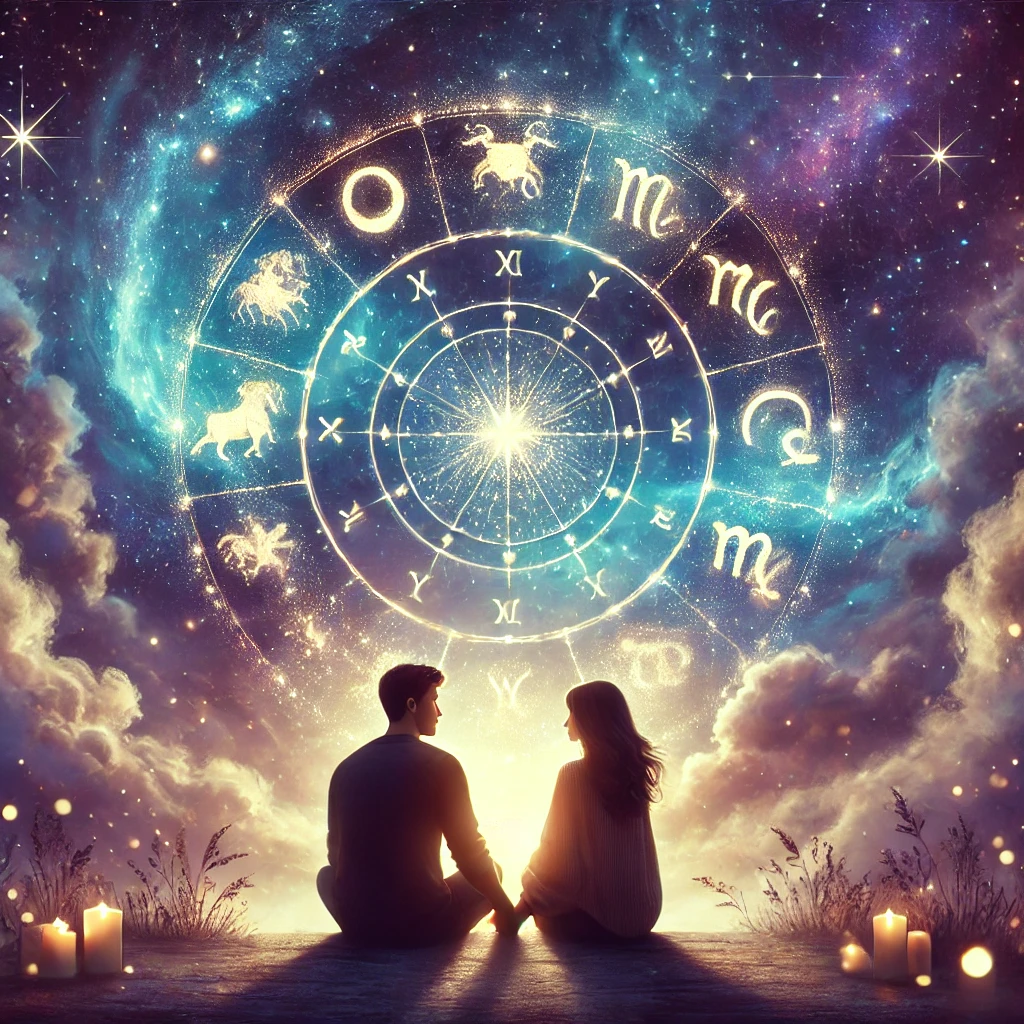Introduction
Dating is an essential part of modern relationships, a journey that allows individuals to explore compatibility, connection, and love. While personality, shared interests, and communication play significant roles in dating success, Vedic astrology offers another profound perspective—an ancient system that can reveal hidden dynamics between partners. Vedic astrology, also known as Jyotish Shastra, uses planetary positions to understand an individual’s personality, emotional needs, and relationship tendencies, making it a valuable tool in the search for love and companionship.
The Role of Astrology in Dating
In Vedic astrology, relationships are influenced by planetary placements in a person’s birth chart (kundali). The chart provides deep insights into an individual’s romantic inclinations, challenges, and compatibility with a potential partner. Unlike Western astrology, which focuses primarily on the Sun sign, Vedic astrology considers the Moon sign, Nakshatras (lunar mansions), and the positions of Venus and Mars to determine romantic compatibility.
Key Planets in Love and Dating
- Venus (Shukra) – Represents love, romance, sensual pleasure, and attraction. A strong Venus indicates charm, affection, and deep appreciation for beauty and relationships.
- Mars (Mangal) – Governs passion, desire, and assertiveness in relationships. A well-placed Mars fosters confidence and strong chemistry, while an afflicted Mars can bring aggression or conflict.
- Moon (Chandra) – Controls emotions and mental compatibility. The Moon’s placement determines how one expresses feelings and connects emotionally with a partner.
- Rahu and Ketu – These shadow planets influence karmic patterns in relationships, revealing past-life connections and lessons to be learned.
Understanding Compatibility Through Astrology
Vedic astrology offers several methods to assess romantic compatibility:
1. Kundali Matching (Guna Milan)
In traditional Indian matchmaking, compatibility is evaluated through Guna Milan, which assigns points (gunas) based on the alignment of the couple’s Moon signs and Nakshatras. The higher the score, the more harmonious the relationship is likely to be. There are eight key aspects:
- Varna (1 point) – Mental compatibility and spiritual outlook
- Vashya (2 points) – Mutual attraction and influence
- Tara (3 points) – Destiny and health compatibility
- Yoni (4 points) – Sexual compatibility
- Graha Maitri (5 points) – Intellectual and emotional compatibility
- Gana (6 points) – Temperamental harmony
- Bhakoot (7 points) – Financial and family compatibility
- Nadi (8 points) – Genetic and health compatibility
A total of 36 points can be obtained, and a match of at least 18 is considered acceptable, while scores above 24 indicate a strong relationship.
2. Navamsa Chart (D9 Chart)
The Navamsa chart is a specialized divisional chart that reveals the deeper essence of a person’s married life and long-term commitment. Even if a couple’s natal charts appear compatible, analyzing the Navamsa chart provides additional clarity on how their relationship will evolve over time.
3. Doshas in Relationship Astrology
Certain planetary alignments create doshas (afflictions) that can impact relationships:
- Mangal Dosha (Mars affliction) – Can cause conflicts and aggression in marriage.
- Shani Dosha (Saturn affliction) – Leads to delays, restrictions, or karmic lessons in love.
- Rahu-Ketu Dosha – Indicates karmic debts and sudden changes in relationships.
Astrology and Modern Dating
With changing times, traditional arranged marriages have evolved into modern dating culture, yet astrology remains a guiding force for many seeking meaningful relationships. Here’s how astrology can assist in contemporary dating:
1. Identifying Ideal Partners
By analyzing the planetary positions of a person’s birth chart, Vedic astrology can suggest the best time and circumstances for meeting a compatible partner. It can also highlight relationship patterns, helping individuals avoid unhealthy romantic cycles.
2. Understanding Relationship Dynamics
Some people experience recurring challenges in relationships—be it commitment issues, emotional distance, or communication barriers. Astrology can reveal the root cause of such patterns, whether they stem from past-life karma or planetary influences.
3. Timings for Love and Marriage (Dasha System)
The Dasha system, which tracks planetary periods, can predict favorable and unfavorable times for relationships. For instance, a Venus or Moon Dasha often brings love and marriage, while a Saturn or Rahu Dasha may lead to delays or relationship struggles.
Using Astrology to Enhance Your Dating Life
- Know Your Moon and Venus Sign – Understanding your emotional and romantic tendencies helps you attract compatible partners.
- Choose Favorable Dates – Auspicious planetary alignments can enhance romantic meetings, making first dates more successful.
- Be Mindful of Astrological Transits – Significant planetary transits (such as Jupiter entering a key house) can indicate new relationship opportunities.
- Perform Remedies for Relationship Harmony – If doshas are present, certain remedies like mantra chanting, gemstone wearing, or temple visits can balance energies and improve love life.
Conclusion
Vedic astrology offers a time-tested approach to understanding love, dating, and compatibility. Whether you are searching for a soulmate or seeking to strengthen an existing relationship, astrology provides insights that go beyond surface-level attraction. By aligning with cosmic rhythms, individuals can make informed choices in their love life, fostering deeper connections and lasting happiness.
